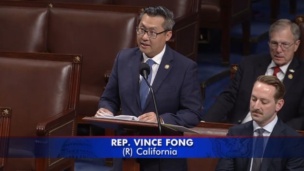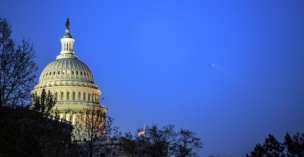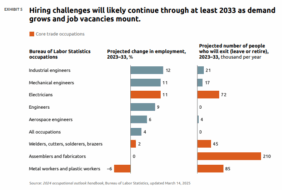The fight over where US Space Command will put down roots has become a central part of the debate on this year’s NDAA, and the longer the industry awaits a final decision, the more charged the spat becomes.
How we got here: A quick recap if you’ve somehow avoided this years-long saga. In January 2021, the Air Force selected Huntsville, Ala., as the permanent home of US Space Command, which has been temporarily headquartered in Colorado Springs, Colo.
Colorado lawmakers have pushed back on the decision since the day it was announced, alleging that former President Donald Trump was attempting to reward a red state and punish a blue state (especially after he said he “single-handedly” selected Alabama as the HQ location), sparking investigations by the IG and GAO.
More than two-and-a-half years later, the Colorado and Alabama delegations are still duking it out on Capitol Hill while everyone else waits on the Air Force to issue its final ruling.
What’s new: The Senate version of the NDAA, which is being considered by the chamber this week, includes a provision that would prohibit the Air Force from spending any money on construction for permanent or temporary Space Command HQ facilities until the service submits a report justifying a final decision. It would also cut the Air Force secretary’s travel budget in half while awaiting the report. The House-passed bill contains a similar mandate.
But Colorado Sens. Michael Bennet and John Hickenlooper are fighting back, and introduced an amendment that would strike that language, but it’s not clear if their amendment will be considered on the floor.
“This legislative hostage-taking must stop,” Bennet said in a statement. “I urge the Biden administration to swiftly make a final basing decision for the US Space Command headquarters based on our national security, not politics.”
Feuding: The fight has devolved into public mudslinging between the Colorado senators and a powerful rival on the other side of the Capitol. Rep. Mike Rogers (R-AL) accused the Defense Department of “deliberate, taxpayer-funded manipulation,” an accusation that Hickenlooper turned back on the House Armed Services Committee chair.
“‘Deliberate, taxpayer-funded manipulation of a competitive selection process’ is exactly how I’d describe President Trump and the Alabama delegation’s attempts to force the @DeptofDefense to put Space Command in Huntsville.” Hickenlooper wrote in a tweet…uh, an X.
The fallout: The delay is having real-world consequences, including plans for a new $150M-building at Schriever Space Force Base in Colorado that is now caught in the crossfire.
But Jessie Kimber, VP of defense development at the Colorado Springs Chamber of Commerce, said there are also more personal ramifications of the delay and said it’s “unsettling” to not yet have a final decision.
“Friends and neighbors are wondering if they’re going to be able to keep their job, or if they’ll have to pack up and move on their own dime,” she said.
The Huntsville Chamber of Commerce did not make anyone available for an interview, but they did provide a letter they sent to Air Force Secretary Frank Kendall in May that made the case again for why Alabama is the best home for the command.
“The decision to base the interim Space Command headquarters at Peterson AFB was based on short-term factors,” Chip Cherry, president and CEO of the chamber, wrote. “Laying claim to this important command based on where the interim headquarters is located is a disservice to the complexity of the basing decision-making process.”
See you at the Broadmoor? Kimber said the annual Space Symposium is staying put in Colorado Springs regardless of the decision, highlighting that the area will still be home to the National Space Defense Center, Buckley Space Force Base, NORAD, and the Space ISAC, in addition to offices for lots of space companies and the Space Foundation non-profit, which hosts the gathering, even if US Space Command leaves.




